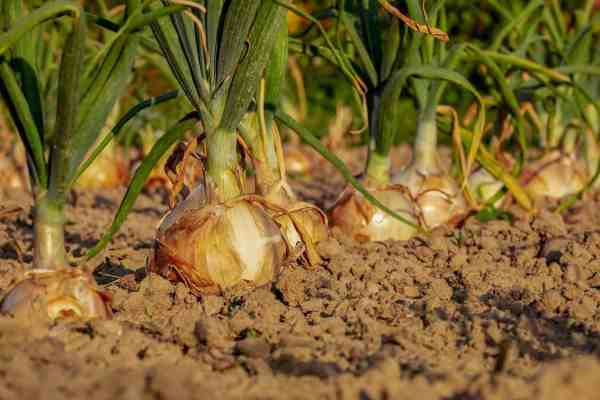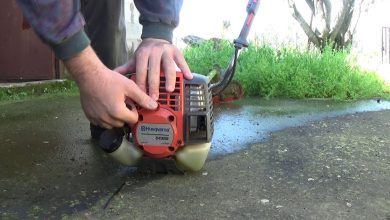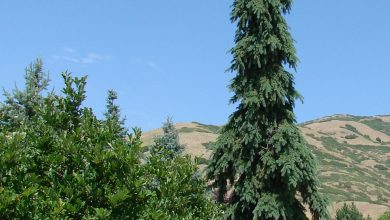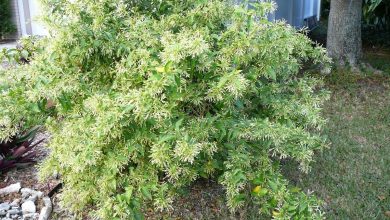Planting Onions in the Garden: [Cultivation, Care, Irrigation, Land and Pests]

Today ‘s articleit will not leave you indifferentand deals with one of the most common vegetables in our gastronomy:the onion.
If you like, this is the deal:
- Read the article (5 minutes).
- Put it into practice in your garden.
- eat your ownorganic onions.
How about?
Planting onions Step by Step:
- When? Ideal in early spring.

- Where? In an area that receives sun throughout the day.
- How do we prepare the land? Airy and fresh. Ideal with motorized tractor. Rich in earthworm humus and potassium.
- What should we avoid? Excess moisture (such as puddles).
- How do we pay? With a manure and avery decomposed compost.
- Before sowing? We prepare a couple of ridges between 25-30 cm.
- How deep? At a depth of about 10-15 cm.
- How do we plant them? We deposit and bury the seeds spaced and throw a handful ofhomemade organic matter such as compost on top.
- How do we water? Ideal drip irrigation. We avoid irrigation by blanket or hose with a lot of pressure.
- When do we collect? When the ends of the stems take on a yellowish color.
- What do we sow with them? Carrots, cucumbers, lettuce, strawberries, beets, melons.
- What enemies does he have? The onion fly and excess moisture in the soil.
We can plant onions throughout the year. Onions are a type of root vegetable that withstand low temperatures well, so we can prepare their crop practically all year round if we live in a temperate climate.
In this article we are going to deal specifically with the cultivation of white onions, one of the most common types of onions.
You will see that it is not difficult at all and we encourage you to try doing it in your own urban or home garden.
In addition to this, onions are widely used in most gastronomic cultures.
Many dishes around the world use onion as a condiment to give different flavors. In addition, we can cook the onions in different ways (baked, pan-fried, steamed, to make broth, etc…).
Did you know…Did you know that Onion can also be effective as an anti-mosquito plant?
- Rich in Vitamins (study).
- Rich in sulfur, potassium, sodium and iodine (study).
- It is a natural antibiotic and anti-inflammatory (study).
- Raw can relieve insect bites (study).
- Its regular consumption benefits the digestive system (study).
- Good ally in blood circulation.
- Half an onion cut and placed next to the bed promotes breathing when we are congested.
The onion is a vegetable that adapts very well to any type of climate, both cold and extreme heat.
Despite the fact that, as we have said, the onion can withstand low temperatures, it is ideal to start its cultivation during the spring.
Onions need light
Onions require a place that receives a good number of hours of sun throughout the day. Therefore, it is convenient to avoid sites that receive shade from trees, walls or other elements.
The onion is planted in places that receive light for a good part of the day.
How do we want the ground?
 On the other hand, we must prepare the soil thoroughly. When we go to plant onions, we must have a fresh and well-aerated soil.
On the other hand, we must prepare the soil thoroughly. When we go to plant onions, we must have a fresh and well-aerated soil.
It is appreciated rich in humus and a calcareous soil.
In addition, it has been shown that soils rich in potassium and nitrogen considerably favor the size of our onions (study).
How do we NOT want the soil?
We do not want a heavy soil with excess moisture. For example, flooding does not favor the planting of onions and their growth.
In the event that the soil that we have to plant onions is hard, then we can choose other varieties of onions such as flat ones.
Do we need to pay to plant onions?
Onions require fertilized soil. However, they do not like fresh manure and poorly decomposed compost. So we want an organic matter such as manure and a well-made and decomposed compost.
In addition, a good trick is to add ashes to the ground.
How should we water?
As we have previously mentioned, onions do not benefit from excessively humid or boggy soils. So drip irrigation would be ideal.
The reason is that with the drip we manage to keep the soil moist, but without going overboard. We also ensured that the soil was not too compacted.
In the end, when it comes to harvesting the onions, we want the soil to be dry so that we can extract them correctly.
At the beginning of planting onions, watering should be constant and almost daily, depending on the temperatures and humidity in the environment.
As time goes by and the onions grow, we will lengthen the irrigation periods.
And now, how do we grow onions?
It’s time to plant the onions. We can start from a seedling (buying it in a specialized store) or from the seed.
We must prepare a couple of ridges, leaving between each planting about 25-30 centimeters of space. The depth at which we should plant the onions should be about 10-15 centimeters.

http://salchajefranmyhuertaurbana.blogspot.com.es/p/hoy-de-septiembre-hemos-sembrado-las.html
How do we care for sown onions?
Onions require moisture on a regular basis, so weeds will frequently appear and will be direct competition for their growth.
We must remove these weeds with gloves and hands or by using a hoe. In the case of choosing the hoe, it is advisable to be careful and not damage the small roots of the onions.
How do we collect?
Once the stems protrude considerably and are also falling to one side, it means that our onions are ready to be harvested.
However, the onions that we are going to preserve require significant drying before being stored. One way is to deposit them in a shady place, but at the same time it is well ventilated. It can be under a big tree, for example.
We let a few days go by and when they are dry we can store them in wooden boxes or hang them, depending on whether we like it or it is more comfortable for us.
- To find out more, read our guide: Harvesting Onions.
- To learn more, read: Stepping On Onions.
What enemies does the onion have?
 The main enemy of the onion is the onion fly. One way to avoid it can be by planting carrots, since they protect each other.
The main enemy of the onion is the onion fly. One way to avoid it can be by planting carrots, since they protect each other.
On the other hand, excess moisture in the soil increases the risk of diseases to which onions may be vulnerable.
In any case, if we have well-cared for, drained and moist soil (without excess), it is very likely that our planting will be successful.
Another good trick is to plant garlic near the onion. Garlic is usually a good natural repellent for the main pests and diseases of onions.
To know more, you can see: Onion diseases.
What do we sow with them?
Onions benefit from having these companions:
- carrots
- cucumbers
- lettuce
- Strawberries
- beets
Sources consulted:




